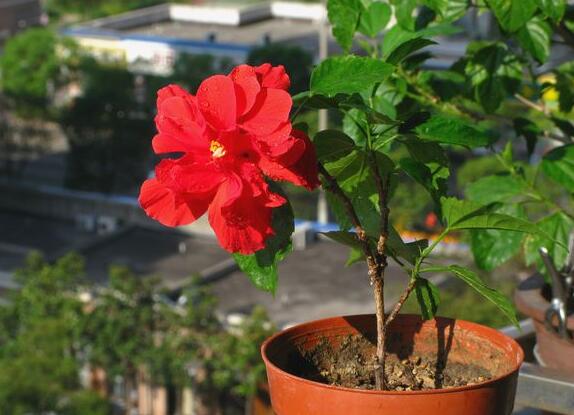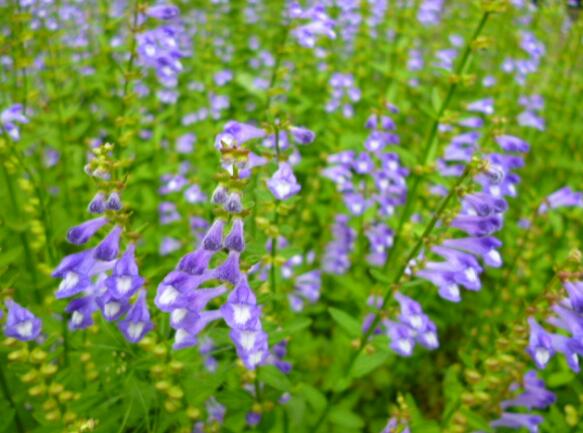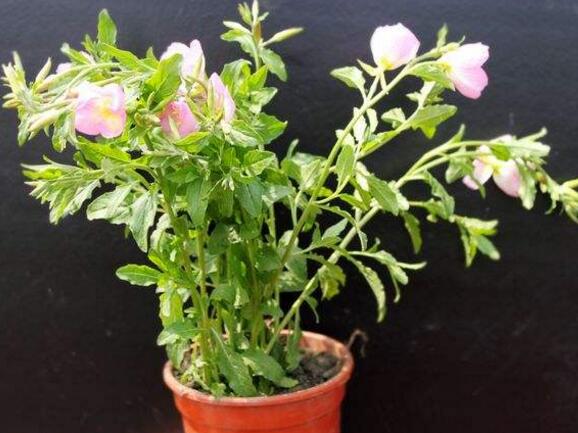How to reproduce hibiscus flowers, hibiscus flower cutting method/operation simple survival rate 100%
Fusang flower, a kind of ornamental plant, not only has large flowers, but also has fiery red flowers. It is very likeable and is potted at home by many flower friends. But is a pot of mulberry flowers too monotonous? it's time to breed several pots and raise them together, so how do mulberry flowers reproduce? According to the inquiry, there are two main propagation methods of mulberry flowers, cutting and grafting, because the survival rate of cutting is high, so the following cutting methods of mulberry flowers.
First, how to propagate mulberry flowers, cuttage / grafting

In the efficacy and function of Fusang flower, we know that Fusang flower is not only beautiful, but also has high medicinal value, so it is often propagated in large numbers. As for how to reproduce Fusang flowers, cutting is the simplest, most practical and highest survival rate. The following editor will introduce the cutting methods of Fusang flower in detail from time, substrate and cuttings, as follows:
(1) the cutting method of Fusang flower.
① cutting time
Fusang flowers are propagated by cutting, and the survival rate is very high, but if you want to achieve 100% survival, you must choose the right time. In the culture method of Fusang flower, we know that Fusang flower likes warm environment, so it is better to cut in spring and autumn, but from the point of view of survival rate, spring cutting is higher than autumn cutting.
② cutting substrate
Cutting in the home propagation of mulberry flowers, the substrate must be selected, according to its growth habits, we should choose loose and breathable, well-drained sandy loam, vermiculite, river sand and so on. Spread a cutting substrate of about 15 cm in the flowerpot, leaving a considerable depth on the substrate so as not to overwhelm the cuttings when covering the glass.
③ cuttings selection
In the cutting method of Fusang flower, the selection of cuttings is very important. if you choose it well, the whole reproduction will be half successful. You can choose an annual sturdy semi-lignified branch with a length of about 10 cm. After selecting the cuttings, cut off all the leaves in the lower section, leaving 2 leaves in the upper section, preferably with terminal buds.
④ cuttage start
How to reproduce the mulberry flowers? after making the above preparations, we can officially begin. When cutting, first use wooden chopsticks, poke a hole in the sand and then insert the cuttings, as shown above.
The best distance between cuttings is about 4 cm, and the depth of cutting is 2 cm 5 of the cuttings, not deeper than 2 cm or shallower than 3 cm. After insertion, spray through the water with a spray can to make the cuttings knot with sand 3.
In order to keep moisture and heat preservation and improve the survival rate of cuttings, above the basin soil, we should cover the glass, and then put it in the direct sunlight, appropriate shade.
⑤ plug-in management
The cutting method of Fusang flower is basically over here, leaving only the final maintenance and management. In order to accelerate the rooting of cuttings, flowerpots should be placed in an environment of 20-25 ℃. Generally speaking, they can take root in about 20 days.
When the weather is hot, you also need to lift the covering glass and spray water to the leaves twice to ensure that the leaves do not wilt due to lack of water.
Note: if a large number of water droplets are found on the glass, the glass should be staggered slightly to make the air circulate. To meet the above requirements, the cutting propagation of Fusang flower is completed, the survival rate is high, the method is simple, beginners can also try.
(2) grafting propagation of Fusang flower.
Fusang flower how to reproduce, in addition to cutting, but also can be grafted, it is generally carried out in spring and autumn. This method is mainly used for mulberry varieties with difficulties in cutting or slow rooting, especially for double-petal varieties with low survival rate of cutting. Branch grafting or bud grafting can be done, and the rootstock can be supported by a single flower, and the grafted seedlings can branch and blossom in the same year.
How to reproduce the dragon boat flower, the three propagation methods / cuttings have the highest survival rate.
Dragon boat flower, a kind of ornamental plant, not only has many flowers, but also has rich flowers and colors, so it is very likeable and is potted at home by many flower friends. However, in addition to watching, the dragon boat flower has many functions and functions, so it is also multiplied in large numbers, so how do dragon boat flowers reproduce? The following are the three breeding methods of dragon boat flower carefully arranged by the editor, let's have a look!
First, how to propagate dragon boat flowers, cuttings / strips / sowing
It is the choice of many flower friends to plant dragon boat flowers at home, but is a pot of dragon boat flowers too monotonous? it is only exciting to breed several pots and raise them together! How do dragon boat flowers reproduce? According to the inquiry, there are three main propagation methods of dragon boat flower, cutting, pressing and sowing, because the survival rate of cutting is high, so the following is the cutting method of dragon boat flower.
(1) the cutting method of dragon boat flower.
The best time for cutting is not in spring, but in June-July. When cutting, select semi-mature branches, which are 10 to 15 centimeters long and pierce into the sand bed at an appropriate temperature of 24 to 30 ℃, usually rooting in one and a half months (assuming that the cuttings can be soaked in 0.5% indolebutyric acid solution for 3 seconds if you want to shorten the rooting period).
① cutting time, June-July
Dragon boat flowers are propagated by cuttings, and the survival rate is very high, but in order to achieve 100% survival, the choice of time is crucial. On the other hand, the cuttage propagation of dragon boat flower can be carried out from March to October after warm spring every year, and it is better to carry out cutting propagation from June to July.
② cutting soil has strong permeability.
In the cutting method of dragon boat flower, cutting soil is very important, which has a great influence on the rooting rate of cuttings. In the culture method of the dragon boat flower, its soil requirement is very clear, but in the cutting propagation, the soil requirement is higher, the standard is: water conservation, strong permeability, clean and so on.
Matrix selection: in life, the commonly used substrates of dragon boat flowers are perlite, vermiculite, river sand and so on, which are best mixed. If used alone, it is suitable for gap spray cutting.
③ cuttings selection, 10-14 cm long
In the cutting method of Fusang flower, the selection of cuttings is very important. if you choose it well, the whole propagation process will be half successful. We can cut twigs and cuttings in spring and summer, specific requirements: strong and disease-free, neat branches. Cuttings size: 10-14 cm in length and more than 3 mm in diameter.
Treatment of cuttings: generally speaking, there is no treatment after selecting cuttings, but for high varieties with large leaves, it is difficult to root, so before cutting, we should treat the cuttings with growth hormones such as indolebutyric acid or neoacetic acid. this can significantly promote rooting.
④ cuttage start
Insert the cuttings into the prepared basin soil and water the soil after insertion to keep the soil moist. It will take about 50 days to take root. Another ten days or so can be transplanted or on the basin, when the dragon boat flowers in a half-shaded place for maintenance, after rooting and survival, and then moved to a sunny place for normal maintenance.
(2) striping propagation of dragon boat flower.
In addition to cutting, striping is also one of the breeding methods of dragon boat flower, which is also carried out before the beginning of spring. Specific operation: select plants with many branches and dense branches, peel them 20 cm away from the top, and then wrap them with peat and film, which can heal and take root for more than 2 months.
(3) sowing and propagation of dragon boat flower.
Plants that can bear fruit can basically be propagated by sowing, including the dragon boat flower. In winter, take dragon boat flower seeds and sow them in the following spring. It is understood that the suitable temperature for seed germination of dragon boat flower is 22-24 ℃, and the drainage holes at the bottom of the basin used for sowing should be enlarged and made into drainage layer. It germinates 20-25 days after sowing, and when 3-4 pairs of real leaves grow, the seedlings can be transferred to 8 cm pot.
How to propagate hibiscus flower? the propagation method of hibiscus flower is mainly cutting propagation.
Hibiscus flower is a common flower plant in people's life, which has high ornamental value and is cultivated in all parts of our country. With the increase in the number of farmers, people are more concerned about its reproduction, about how to breed hibiscus flowers. What are the breeding methods of hibiscus flower? Next, the editor will take you to learn about it.
1. How to reproduce, cuttage / grafting of hibiscus flower
When it comes to how to reproduce hibiscus flowers, in fact, it is mainly divided into two methods: cutting propagation and grafting propagation, of which cutting propagation is a more commonly used one, and the survival rate is relatively high. However, although the number of people used for grafting is relatively small, the survival rate is also very high as long as it is handled properly. Below are the details of the two breeding methods, which interested friends can learn about.
II. Breeding methods of hibiscus flower
Cuttage propagation
1. The selection of matrix and good drainage
Before we carry on the cuttage propagation of hibiscus flower, we must first choose the soil. Generally speaking, we had better choose the humus soil which is loose, fertile and rich in organic matter. This kind of soil has high nutritional value, good drainage and air permeability, and can make the plant grow better.
two。 Matrix disinfection, high temperature disinfection
After we have selected the substrate, we cannot plant it immediately. It is best to sterilize it first so as not to infect the plant due to diseases and insect pests. During disinfection, we can break it up and lay it out in the sun, or we can put it in a pan and stir-fry, so that even if there are diseases and insect pests, they will be killed because of the high temperature.
3. Selection of cuttings and branches with strong growth
After we have selected a good substrate, we also need to choose cuttings. Generally speaking, it is best to choose branches that grow stronger and are free from diseases and insect pests as cuttings, so the survival rate will be higher. If we choose branches that look slim, then it is basically difficult to survive, so we should not be too casual in the choice.
4. Cutting method, rooting in 20-25 days
Among the propagation methods of hibiscus flower, cutting propagation is relatively simple. First, we should cut off the lower leaves of the cuttings, leave the top leaves, and use chopsticks to cut a hole in the substrate, then trim the leaves at the bottom of the cuttings, and then insert the cuttings into 1x2, which is very practical, and then pour water thoroughly to keep the room temperature between 18 and 21 ℃. It will take about 20-25 days to take root.
Grafting propagation
When we carry out grafting propagation of hibiscus flowers, it is best to choose in spring and autumn. This method is generally used for varieties of hibiscus flowers with difficulties in cutting or slow rooting, especially for double varieties with low survival rate of cutting, either branch grafting or bud grafting. The rootstock is supported by a single flower, and the grafted seedlings are cut and blossomed in the same year.
- Prev

How to breed, how to breed/sow/cuttings
Barbat skullcap is a common plant in people's life. It originated from South America and was introduced to China later. How to breed on scutellaria barbata, in fact, can be divided into seeding propagation, cuttage propagation two kinds, as long as the method is right, the survival rate is relatively high. Want to know how to reproduce Barbata Barbata
- Next

How to sow evening primrose and the propagation method / sowing / cutting of evening primrose
Evening primrose is a kind of plant with high medicinal value, which has a good effect on many diseases, so many people want to keep one at home. How to sow Evening Primrose, and how many propagation methods are there? Next, the editor will take you to learn about it.
Related
- Fuxing push coffee new agricultural production and marketing class: lack of small-scale processing plants
- Jujube rice field leisure farm deep ploughing Yilan for five years to create a space for organic food and play
- Nongyu Farm-A trial of organic papaya for brave women with advanced technology
- Four points for attention in the prevention and control of diseases and insect pests of edible fungi
- How to add nutrient solution to Edible Fungi
- Is there any good way to control edible fungus mites?
- Open Inoculation Technology of Edible Fungi
- Is there any clever way to use fertilizer for edible fungus in winter?
- What agents are used to kill the pathogens of edible fungi in the mushroom shed?
- Rapid drying of Edible Fungi

